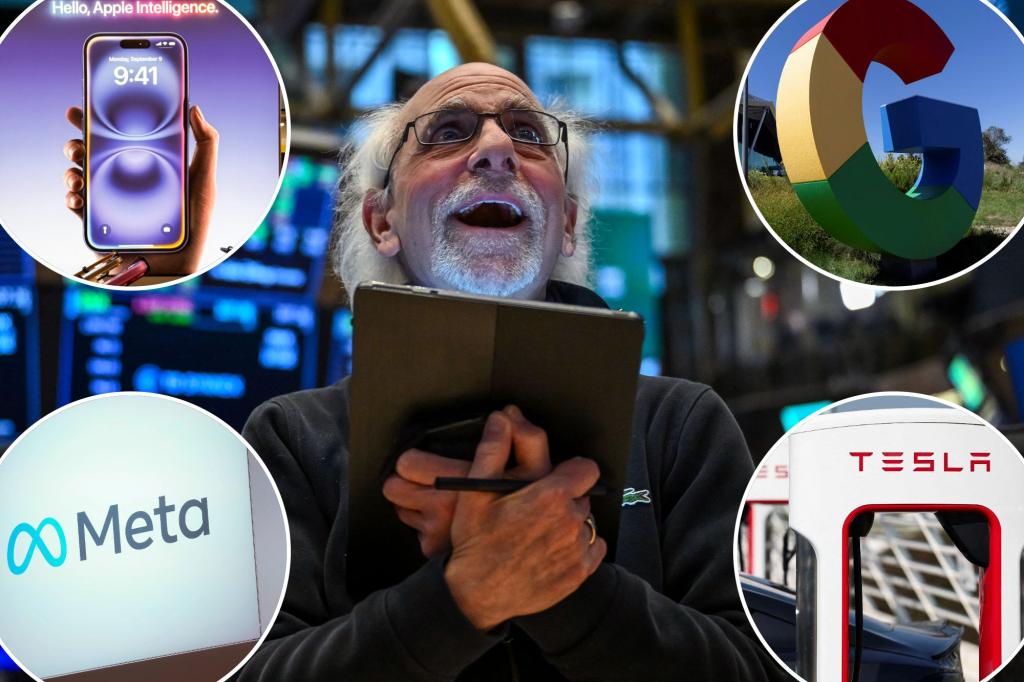The “Magnificent Seven” stocks amassed more than $1.5 trillion in market value on Wednesday after President Trump paused his sweeping tariffs for 90 days, easing pressure on tech giants that had tumbled in recent sessions.
The gains did not erase the $3.4 trillion in value the companies have collectively shed since their peak in late 2024, with some $2 trillion of those losses coming since last week after Trump slapped tariffs on imports from countries including major tech market and exporter China.
But the reprieve gave investors a reason to buy back these expensive stocks, whose valuations had reached stratospheric levels as the companies bet billions of dollars on building out artificial-intelligence infrastructure.
“The pause hopefully gives CFOs and COOs breathing room to proceed with AI-related expansion plans that may have been on hold due to trade friction, particularly as AI chip imports and specialized hardware – example from Taiwan or South Korea – are exposed to tariff risks,” said Michael Ashley Schulman, chief investment officer at Running Point Capital, which has exposure to the Mag 7 stocks through funds and family clients.
“Big Tech’s AI ambitions require enormous capex, cross-border talent, and complex hardware dependencies,” Schulman said.
He added that clarity on tariffs was critical to removing uncertainty from budgeting decisions, and while the pause would allow companies to resume strategic planning, the outlook was still unclear.
Shares of the companies – AI chip giant Nvidia, Apple, Tesla, Microsoft, Alphabet, Facebook-parent Meta and Amazon – closed up between 9% and 23%, powering a market rally that pushed the Nasdaq up more than 12%.
Besides roiling markets, tariffs have cast a pall on businesses’ spending on AI-powered tools and services offered by the tech giants. Wall Street will scrutinize budgets and expenses when businesses report quarterly results starting later this month.
Alphabet on Wednesday reiterated it would spend about $75 billion this year to build out data center capacity, while Microsoft has said it was on track to spend more than $80 billion to develop its datacenter infrastructure.
“These investments are informed by near-term and long-term demand signals,” Microsoft said on Tuesday.
Trump said on Wednesday he would pause many of his new tariffs for 90 days, even as he raised them further on imports from China. His sudden reversal came less than 24 hours after steep new tariffs kicked in on imports from dozens of trading partners.
He said he would raise the tariff on Chinese imports to 125% from the 104% level that took effect at midnight. At the same time, he said he would lower them on other countries also subject to his new targeted duties.


